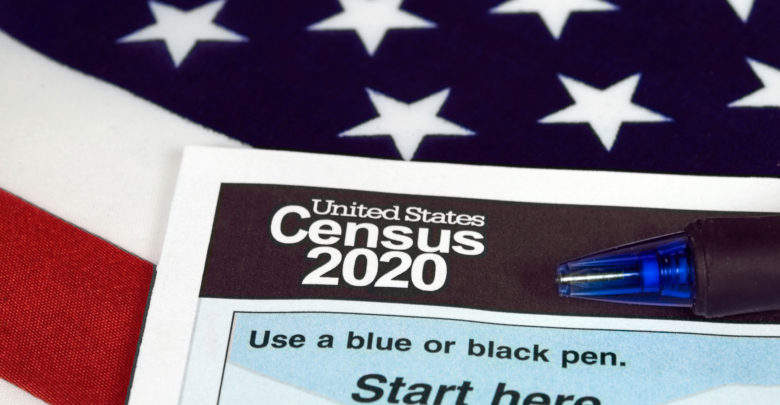The Ugly Origins Of The 2020 Census Citizenship Question

Last week, the Supreme Court issued a decision rejecting the Trump administration’s attempt to reinstate a citizenship question on the 2020 census form.
But it didn’t kill it dead.
The Court’s beef wasn’t with the substance of whether a citizenship question could be included on a census form. After all, such questions have been more the norm than the exception throughout the history of the census.
Rather, the Court found that the administration’s explanation of why it had reinstated the question – supposedly to help the Civil Rights Division of the Justice Department collect data to enhance the Voting Rights Act – was pretextual and, well, downright phony:
“Reasoned thinking under the Administrative Procedure Act calls for an explanation for agency action. What was provided here was more of a distraction.”
Instead of declaring game-over, however, the Supreme Court sent the case back to the trial court “for further proceedings consistent with this opinion.”
Translation: If the administration can come up with a better explanation for its actions, the citizenship question might still be allowed on the census form.
What’s needed here, in other words, is a newly imagined, less transparently bogus pretext.
Trump is now taking up the Court’s invitation to revisit the issue, either by going back to the court with a new explanation or by an end-run executive order. Either way, it’s going to end up back in court.
Given the extensive record summarized in the Supreme Court’s decision, it’s hard to imagine Trump coming up with a new, believable explanation. After all, we already know what happened.
It all started with Commerce Secretary Wilbur Ross’ phony claim that the citizenship question was added at the request of the Civil Rights Division of the Department of Justice. According to Ross, the DOJ wanted census-based data to better enforce the Voting Rights Act.
But this story wasn’t even close to the truth. Even Chief Justice John Roberts had no trouble finding that Ross’ explanation was a sham that did not match the evidence. Ross’ cover story “seems to have been contrived.”
True that.
The truth was that Ross had been hell-bent on reinstating the citizenship question “from the time he entered office.” And it had nothing to do with the Voting Rights Act. Indeed, the impetus behind the citizenship question, revealed in a Memorandum from the House Oversight Committee, appeared to be the opposite of enhancing voting rights. It was to collect data to help redistrict House seats to exclude “aliens” from the calculation, and to advantage Republicans and “non-Hispanic” white voters.
While this rationale might have played well at the country club, it obviously wasn’t going to withstand legal scrutiny.
That meant Ross had to gin up a pretext.
He started by sending his staff on a scavenger hunt to find a compliant federal agency that would agree to request the data for any reason they might dream up. As Ross’ own Director of Policy put it, Ross tasked him to “find the best rationale” for reinstating the citizenship question.
It was only after being rebuffed by the Department of Homeland Security and the DOJ’s Executive Office for Immigration Review that Ross found an agency willing to play ball.
Even then, it wasn’t easy.
Ross’ Commerce staff had cooked up a plan to ask the DOJ’s Civil Rights Division to request citizenship data for the supposed purpose of enhancing the Voting Rights Act. But initial attempts to get the Civil Rights Division to feign interest didn’t go well, either because the career professionals at the Division correctly saw this as a cynical attempt to cover voter suppression with a veneer of civil rights, or because the leadership of Trump’s Justice Department couldn’t care less about the Voting Rights Act. Take your pick.
Undaunted, Ross decided to big-foot the Civil Rights Division by going straight to the boss, the Attorney General himself.
Picture this: Commerce Secretary Wilbur Ross makes a personal appeal to Attorney General Jefferson Beauregard Sessions III to pretend to come to the rescue of the Voting Rights Act. No matter that Sessions “has spent his whole career opposing voting rights.” No matter that Sessions publicly branded the Voting Rights Act as “intrusive.” No matter that Sessions had reversed the federal government’s attempts to stop states from removing people from the voting rolls and dropped the DOJ’s objection to strict voter-ID laws.
Little wonder, then, that the Supreme Court, in a masterpiece of understatement, found that “DOJ’s interest was directed more to helping the Commerce Department [find a rationale for the citizenship question] than securing the data.”
It’s hard to see how Trump and his current Attorney General, William Barr, could find a way to erase all of this history and go back to the courts with a whole new phony explanation.
More likely, Trump will try the executive order route.
But either way, the citizenship question could still find its way back onto the census form.
So, what can we do about it?
Actually, there is something we can do. While we may not be able to prevent the citizenship question from being reinstated, we have the power to significantly diminish its impact.
We can refuse to answer the question.
If enough of us do so, loudly, non-citizens will have the cover they need to do the same without fear. They can fill out the census form, but not answer the citizenship question, knowing that there’s no way the Trump administration will be able to tell which of the tens of millions of people who didn’t answer the question are citizens, and which are not.
If enough people go along, this mild act of civil disobedience will be more than a protest or an act of resistance.
It will make a difference.





President Trump should make the reasoning for the citizenship question clear: California has four extra House members because of the 2.5 million illegals living there. Four. Twice the combined House seats of Wyoming and Montana.
But, by all means Phil, hold your breath and stomp your feet until you turn blue. Oops, too late.
Kind of a silly, non-sequitur comment because congressional seats aren’t based on citizenship. But thanks anyway for reading the piece.